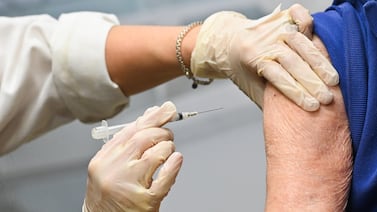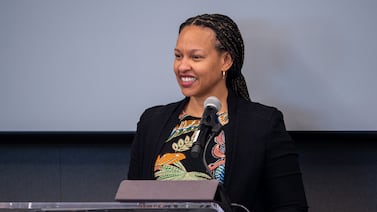Public health, explained: Sign up to receive Healthbeat’s free Atlanta newsletter here.
Here’s a few public health priorities that Americans can agree on: making health care more accessible and affordable, ensuring the safety of food and water, and fighting chronic diseases.
Those were named as the top priorities in survey results released this week by Emory University in Atlanta and Gallup.
“We wanted to make sure we had essentially a pulse check for where Americans wanted us to go,” said Dr. Stephen Patrick, an Emory professor who helped design the survey of 2,121 adults 18 and older.
The survey was conducted in December after President Donald Trump’s election.
“How can we, early on in a new administration, highlight what Americans really want out of public health in the next four years?” Patrick said of the impetus for the survey.
Responses were weighted to match national demographics by gender, age, race/ethnicity and other factors.
“There’s a fair amount of agreement across political parties, across demographics” in the findings, Patrick said.
Most respondents named these priorities in their Top 3:
- Improving health care access and affordability (52%)
- Ensuring safe water and food (37%)
- Reducing chronic diseases (32%)
Patrick said he wasn’t surprised that those issues ranked high. He hears concerns from parents of patients in his neonatology practice about finding and paying for care.
Food and water safety are highly local issues, Patrick said. “It’s the local public health department that makes sure the restaurant up the street meets safety codes.”
Some believe U.S. has ‘lost ground’ on opioids, mental health
The survey asked people about progress on 10 health issues, Patrick said. The results showed many see a lack of progress on opioids and mental health.
Fifty-four percent of respondents thought America had lost ground on the opioid epidemic, and 50% said the country had lost ground on mental health.
Republicans and Republican-leaning respondents were more likely than other groups to say the United States has lost ground on mental health (59%) and opioid (69%) issues.
“We still treat mental health and substance use as pretty darn separate,” Patrick said. “Perhaps that’s an area where we can focus the next couple of years to be really comprehensive in the way we approach the opioid conversation and really have a broader conversation about mental health.”
It’s an issue that affects his practice, too.
“As a neonatologist, infants are the fastest-growing group in foster care today, most due to parental substance use,” Patrick said. “You just see the trickle effects of some of these problems that Americans are highlighting that really could take all of us to begin to address.”
Republicans and Democrats agree that the federal government plays a key role in health care, Patrick said.
For example, many said the federal government was better equipped than state governments to address a wide range of health issues, including ensuring safe water and food and addressing health effects from weather and climate change.
For other issues, like loneliness and rural health, many more people said state governments are better equipped.
Democrats and Republicans trust the CDC
The survey found some agreement about trusted sources of public health information, with some differences by age, education and party affiliation.
In general, the country’s Top 3 trusted public health sources – chosen from a list of 15 -- were:
- Doctor, nurse or health care provider
- Scientific research and studies
- The Centers for Disease Control and Prevention
Democrats (60%) and Republicans (17%) ranked the CDC among their Top 5 sources for trusted information.
Other top trusted sources include medical websites and state health departments.
When it comes to social platforms, 9% of respondents ranked social media as a Top 3 trusted source, and 6% of respondents chose YouTube and other influencers.
That is more pronounced among young people. Sixteen percent of young people between ages 18 and 29 said social media is a Top 3 trusted source, the survey found.
“That’s one area where perhaps we need to be more effective” in public health messaging, Patrick said.
“I do think it’s incumbent upon social media companies to do a better job of ensuring that what we have on social media is more accurate,” Patrick said. “As a pediatrician and as a parent of adolescents, I have profound worries about what social media continues to do to our youth.”
Rebecca Grapevine is a reporter covering public health in Atlanta for Healthbeat. Contact Rebecca at rgrapevine@healthbeat.org.






